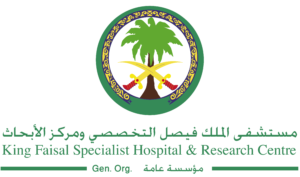By King Faisal Specialist Hospital & Research Centre
The Frequent Hemodialysis Network initiative at King Faisal Specialist Hospital and Research Centre (KFSH&RC), Jeddah, revolutionizes renal replacement therapy through Home Hemodialysis (HHD), specifically designed for patients with End-Stage Renal Disease (ESRD), high frailty index, advanced cardiac comorbidities, and significant mobility challenges. This initiative uniquely brings high-quality Hemodialysis into the comfort of patients’ homes, targeting a highly vulnerable group that struggles with conventional outpatient dialysis due to transportation and mobility issues.
From August 2022 to July 2023, we enrolled 35 patients (19 males and 16 females, aged between 42 and 84 years), previously dependent on outpatient dialysis. Our comprehensive approach involves meticulous monitoring of health indicators, dialysis efficiency, hospital admissions, and mortality, facilitating a comparative analysis with traditional outpatient hemodialysis outcomes. Our initiative stands out for its patient-centered methodology, ensuring superior patient value through improved compliance, better volume and uremia control, decreased medication use and side effects, and enhanced access to caregivers during dialysis. Our preliminary observations have demonstrated significant reductions in emergency room visits, hospitalizations, readmission rates, and instances of hyperkalemia and volume overload. Additionally, we’ve noted decreased pill burdens for managing chronic kidney disease mineral and bone disease (CKD-MBD), reduced requirements for intravenous iron and erythropoietin agents for anemia management, translating into substantial healthcare savings and reduced inpatient service demand. Looking ahead, as we scale our initiative, we aim to increase patient numbers while maintaining, if not improving, the quality of care provided. Our strategies include leveraging technology for remote monitoring and patient education, broadening partnerships with companies specializing in home hemodialysis, and refining our operational processes to ensure cost-effectiveness and sustainability. The cost-effectiveness of our initiative is quantifiable through the pharmacoeconomic model highlighting decreased medication usage, reduced hospital and emergency room visits, and minimized need for inpatient consultations. Our payment model, transitioning towards value-based contracts, aims to reflect these efficiencies, focusing on outcomes and innovation rewards. As we upscale, managing costs and ensuring the sustainability of value-based contracts will be pivotal, driven by ongoing analysis and adaptation to ensure the initiative remains financially viable and beneficial to patients.
In conclusion, our HHD initiative exemplifies exceptional value-based healthcare by directly addressing the complex needs of ESRD patients with comorbidities and mobility issues. By offering tailored, home-based care, we not only improve patient outcomes and quality of life but also demonstrate significant cost savings, setting a scalable model for similar patient populations globally.

